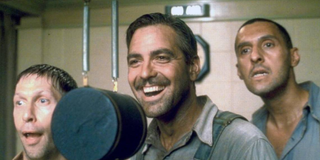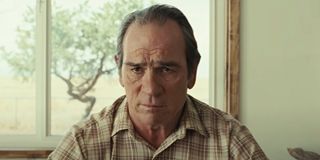coen brothers
Latest coen brothers

Ethan Coen Is Lining Up A Great Cast For His First Movie Without Brother Joel
By Adam Holmes published
Ethan Coen is putting together his first movie without brother Joel Coen, and he’s already lined up a great cast.

Loki: How The TVA Was Partially Inspired By A Coen Brothers Classic
By Nick Venable published
Beyond all the classic sci-fi, Loki's director revealed to CinemaBlend the Coen brothers film that served as a TVA inspiration.

Fargo: 10 Behind-The-Scenes Facts About The Coen Brothers Movie
By Michael Balderston published
You betcha, these are some pretty interesting facts about the snow-bound crime classic

That Time George Clooney Bombed His Singing Audition For O Brother, Where Art Thou
By Braden Roberts published
George Clooney found out the hard way that signing doesn't always run in the family.

The Coen Brothers' A Serious Man Is The Best Horror Movie You're Not Watching This Halloween
By Eric Eisenberg published
You might not think of the film as a horror movie, but it definitely is one.

No Country For Old Men: 10 Behind The Scenes Facts About The Coen Brothers Classic
By Philip Sledge published
10 more reasons to love the Coen Brothers 2007 classic

No Country For Old Men Ending Explained: What Was Tommy Lee Jones Talking About?
By Philip Sledge published
So, what's the deal with those two dreams?

The Coen Brothers' Scarface Remake Looking At Two Exciting Directors
By Conner Schwerdtfeger published
The Scarface remake officially has two directors potentially lined up to helm the project, and both of them are perfect for the job.
CINEMABLEND NEWSLETTER
Your Daily Blend of Entertainment News





